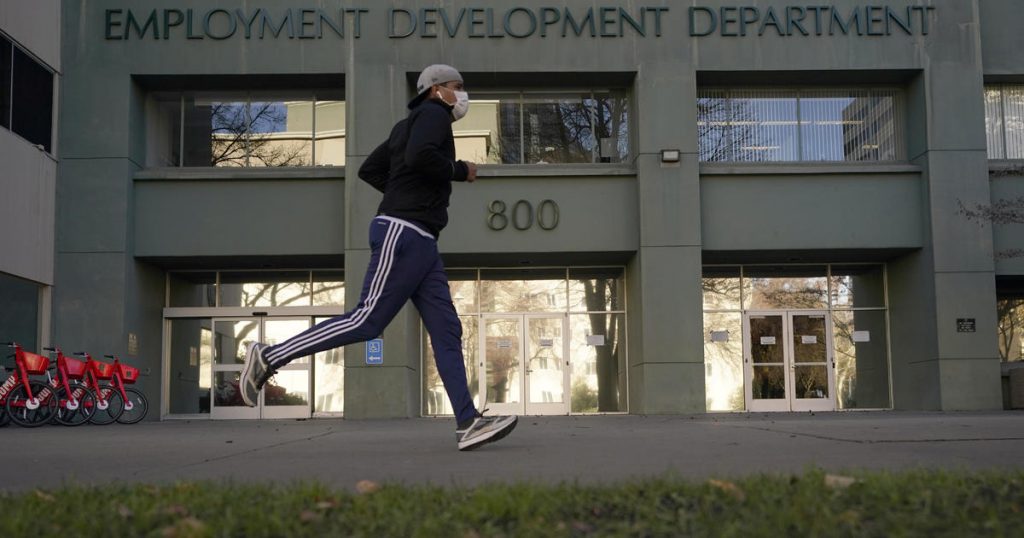
SINGAPORE — The U.S. and China had been growing apart before Donald Trump became president, and that trajectory will likely continue under President Joe Biden, a trade expert told CNBC on Monday.
“Trump, in my point of view, just about made everything worse. But decoupling began before Trump, and it’s going to continue regardless of what Biden does. I don’t think he’s going to order companies to leave, but I don’t think he’s going to encourage them to stay either,” said William Reinsch, a senior advisor at the Center for Strategic and International Studies.
Trade tensions between China and the U.S. have escalated in recent years. While the two countries reached a so-called phase one trade agreement in January 2020, their differences have spilled over into technology and finance, leading to concerns that the two countries may be “decoupling.”
The term refers to a separation, rather than integration, of the world’s two largest economies in areas ranging from trade to technology.
American companies have found it more difficult to operate in China, Reinsch told CNBC’s “Street Signs Asia” as part of the Davos Agenda 2021, a virtual event organized by the World Economic Forum.
“Frankly Chinese actions lately have made it very difficult for companies to stay there, particularly companies that are in consumer facing businesses and retail. They’re very sensitive to image,” Reinsch added.
Those actions, Reinsch said, include China’s alleged repression of Uighurs, a minority group that lives mostly in the western part of China.
The Australian Strategic Policy Institute and CSIS both authored reports claiming that Uighurs have been shipped to factories across China and forced to work. The U.S. State Department and Department of Labor also have issued reports describing forced labor among Uighurs in China.
China has characterized those allegations as “disinformation,” telling CNBC in December that “all ethnic groups in Xinjiang choose their occupations according to their own will.”
The New York Times reported late last year that Apple, Nike and Coca-Cola lobbied to weaken a bill banning imports made using forced labor. Nike told CNBC that it had lobbied against the bill. Apple and Coca-Cola told CNBC that they prohibit forced labor and audit their supply chains to enforce guidelines.
Reinsch also flagged China’s “aggressive” actions in the South China Sea, which has been a point of contention between Beijing and Washington. China claims most of the sea’s 1.4 million square miles as its own, despite a 2016 ruling by the Permanent Court of Arbitration in The Hague that rejected those claims. Countries including the Philippines, Taiwan and Vietnam also claim parts of the resource-rich sea.
“These (actions) have an impact on American companies, very difficult for (them) to justify continuing to do business with China in that situation,” Reinsch said.
“I think Chinese policies are a significant part of the issue. And I think if you listen to Xi Jinping’s remarks from time to time, he’s supporting some degree of decoupling,” he added, referring to the Chinese president’s call for greater self-reliance.
A ‘prelude’ to diplomatic negotiations
Over the weekend, tensions appeared to worsen. Reuters reported China sent fighter jets into Taiwan’s air defense identification zone on Saturday and Sunday. Taiwan responded by sending up its own air force to monitor the activity, the news agency reported.
The U.S. State Department in a statement urged China to stop pressuring Taiwan. An American aircraft carrier group also entered the South China Sea to promote “freedom of the seas,” the U.S. military said in a statement to Reuters.
However, Li Daokui, an economics professor at the Tsinghua University in Beijing, told CNBC he was not “particularly alarmed” by the development in Taiwan.
“I believe … (it’s) a prelude to a new round of diplomatic negotiations between …China and U.S. So before any negotiations, you do have to make some moves to indicate … your overall attitude,” he said, also speaking to CNBC’s “Squawk Box Asia” as part of the Davos virtual event.
China has a track record of “testing” new U.S. presidents, according to CSIS’ Reinsch, who was not speaking specifically about the developments around Taiwan.
“There’s a long history of China testing new presidents with various things — ships sailing too close together, incidents like that, to see what they do,” he said. “But I think the American response will be no less forceful than previous presidents.”
Biden was inaugurated as the new U.S. president last week.
— CNBC’s Evelyn Cheng contributed to this report.

